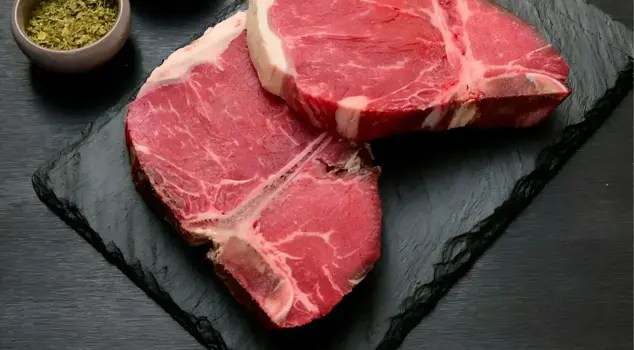
19.02.2025 12:01
The Ministry of Agriculture and Forestry, the Meat and Milk Board (ESK), and the General Directorate of Livestock are taking measures to regulate the market against speculative movements in the red meat sector ahead of Ramadan.
The Ministry of Agriculture and Forestry is taking measures to regulate the market against speculative movements in the red meat sector before Ramadan through the Meat and Milk Institution (ESK) and the General Directorate of Livestock.
Mustafa Kayhan, the General Manager of ESK, stated that the institution carries out a regulatory function. Emphasizing that their stance in market interventions is in line with the Ministry's policies, Kayhan said, "We are implementing measures to ensure that acceptable price policies dominate the markets, taking into account all stakeholders in the sector, considering the producers' costs, and valuing the purchasing power of consumers."
"MOST PRICE MOVEMENTS ARE SPECULATIVE"
Pointing out that the meat sector is an area that experiences difficulties from time to time, Kayhan stated: "We have made strong efforts to ensure market stability in the meat sector with the measures we have taken over the past two years. Despite all this, red meat is a sector that is on the agenda, including those who have no relation to it. Everyone knows about the price fluctuations that started last week. When we delve into the source of this, we see that unrelated people are making comments and imposing expectations on the market. When there is an expectation, producers do not slaughter their animals, supply is restricted, but the demand side does not wait. Therefore, abnormal price fluctuations are seen periodically. Most of these movements are speculative."
"THERE IS NO SUPPLY SHORTAGE IN THE MARKET"
Kayhan, who provided information that they have identified the amount of supply deficit and made purchases, stated, "Before the month of Ramadan, we have supplied both butchered and carcass meat to the market. We carry out all of these calculations. Currently, there is no supply shortage in the market; the imbalance in prices is entirely speculative."
Emphasizing that they are against unfair profits, Kayhan expressed that they will not allow structures that eliminate competitive conditions. Reminding that the authority for live animal imports has been granted to ESK, he explained that they have successfully managed this as well. Kayhan pointed out that imports are not a preference but a necessary measure under current market conditions, stating that ESK has the power to intervene in the market in every way. He noted that they particularly consider breeders in these interventions.
"OUR GOAL IS TO BECOME A SELF-SUFFICIENT COUNTRY IN RED MEAT"
Salih Çelik, the General Director of Livestock at the Ministry of Agriculture and Forestry, also stated that their main goal in livestock is to protect water resources, prioritize animal welfare, increase productivity and registered production, and encourage young and female producers.
Çelik stated that their goal is to increase efficient, quality, and registered production, saying, "The red meat sector is a critical sector that directly contributes to rural development, employment, and economic growth, beyond just being a food production area. Our country places great importance on animal production to ensure food security for both its population and our guests, to minimize imports, to become self-sufficient, and to increase its competitiveness in the international market."
"THE SELF-SUFFICIENCY RATE IN RED MEAT IS 95.2%"
Çelik pointed out that red meat production continues to increase, noting: "Our red meat production, which was 778 thousand tons in 2002, has reached 2 million 384 thousand tons with a 206% increase as of 2023. As of today, our country's self-sufficiency rate in red meat is 95.2%. Our goal is to increase this rate to 100% in the coming years and to become a completely self-sufficient country in red meat. In 2024, increases are expected with production planning. Along with this, we anticipate that there will be no issues with meat supply in 2025 with the entry of imported fattening animals into slaughter."
Çelik emphasized that speculative movements in the market are being monitored, stating, "To prevent speculation in the market, price movements are closely monitored with our market tracking system, and necessary interventions are made in cooperation with relevant ministries and institutions against speculative actions. Additionally, with our new support model prepared within the framework of production planning, taking into account food supply security, a production model that is efficient, sustainable, quality-oriented, and based on registration is aimed."